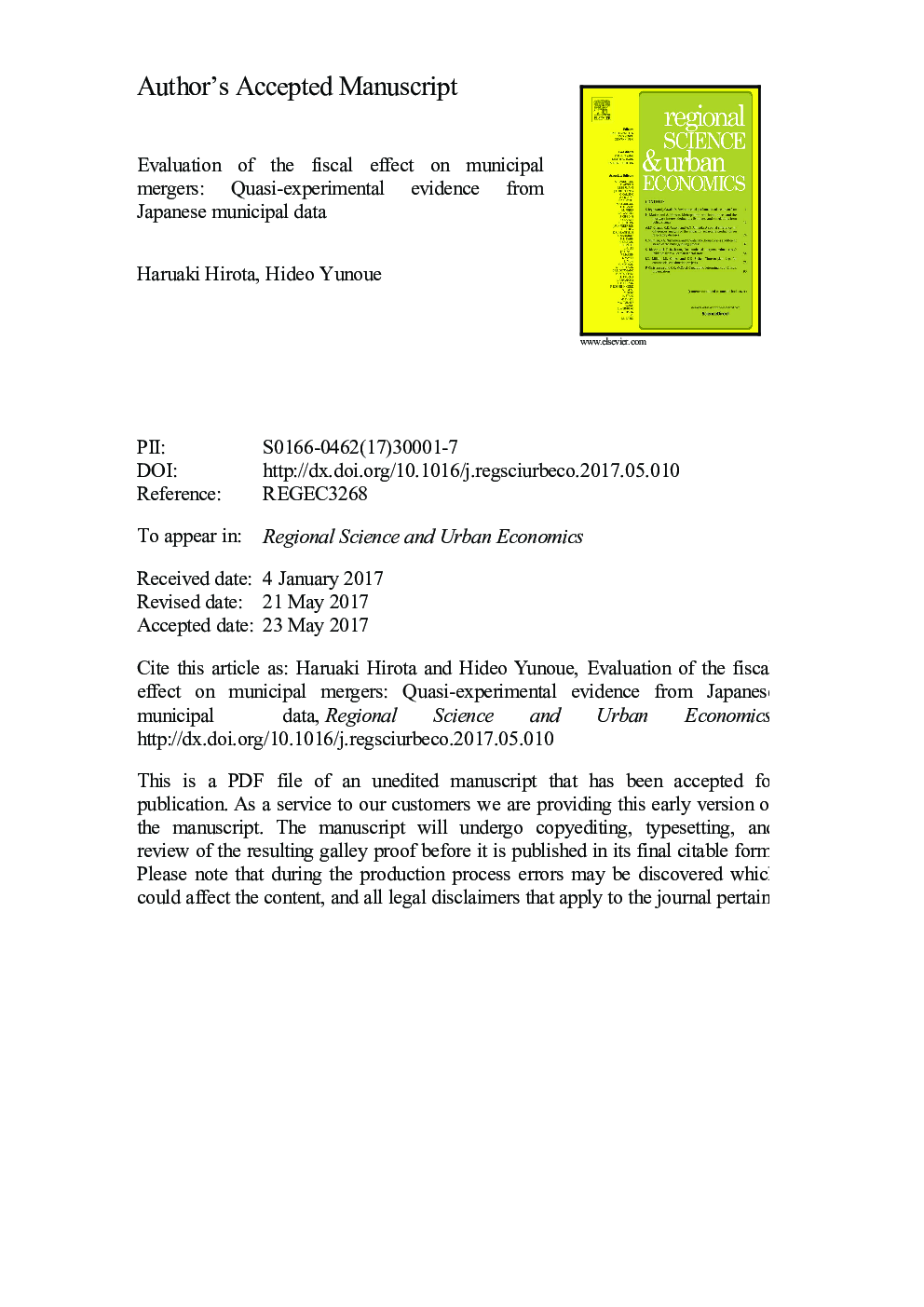| Article ID | Journal | Published Year | Pages | File Type |
|---|---|---|---|---|
| 5103706 | Regional Science and Urban Economics | 2017 | 40 Pages |
Abstract
The purpose of this paper is to evaluate a fiscal common pool problem in Japanese municipal mergers. Specifically, we investigate whether the merged municipalities rapidly increase their expenditures and bonds just before mergers. Because the likelihood of Japanese municipal mergers depends on a municipality's characteristics such as population size, area, and fiscal conditions, municipal mergers are a non-voluntary and non-random phenomenon in Japan. Therefore, we identify causal effects by applying propensity score matching within a differences-in-differences framework to address the problems of endogeneity bias and sample selection bias. In particular, we focus on the subordinate merger partner in absorption-type mergers. Our results show that the subordinate merger partner suffers from adverse fiscal conditions and creates a fiscal common pool problem in public projects just before mergers.
Keywords
Related Topics
Social Sciences and Humanities
Economics, Econometrics and Finance
Economics and Econometrics
Authors
Haruaki Hirota, Hideo Yunoue,
